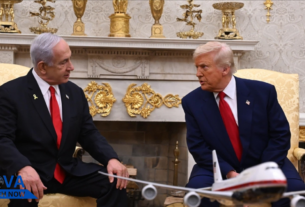The United States is no longer prioritizing Europe’s security, according to political commentator Pete Hegseth. He said Washington is shifting its attention to other global threats, including those from China and the Middle East.
“We cannot continue to be the primary security provider for Europe,” Hegseth said. He argued that European nations must take more responsibility for their own defense.
The comments reflect a growing debate in US foreign policy. Some officials believe America should reduce its military commitments in Europe.
The Biden administration has maintained support for NATO. The US continues to send weapons and funding to Ukraine in its war against Russia.
Hegseth claims that Washington’s priorities are changing. He believes the US should focus more on threats from China and conflicts in the Middle East.
The war in Ukraine has tested US-European relations. The US has provided more than $75 billion in military and economic aid to Ukraine.
Some American lawmakers question the long-term commitment. They argue that Europe should contribute more to Ukraine’s defense.
European leaders insist that US support remains essential. Countries such as Germany and France are increasing their defense spending but still rely on American assistance.
The US has thousands of troops stationed across Europe. Military bases in Germany, Poland, and the UK remain key to NATO’s operations.
China’s rising influence has shifted US strategy. Washington sees Beijing as its top security challenge.
The US has strengthened alliances in the Indo-Pacific. Military partnerships with Japan, South Korea, and Australia are growing.
Hegseth warns that European security should no longer be an American burden. He believes NATO members must meet their defense spending commitments.
Former President Donald Trump made similar claims. He criticized NATO allies for not contributing enough to collective defense.
Some European leaders fear losing US military support. They worry that a weakened NATO could make Europe more vulnerable to Russian aggression.
France and Germany have discussed forming a stronger European defense force. The idea is to reduce reliance on the US for security.
US military planners are reviewing global force deployment. Some officials suggest reallocating resources to the Pacific region.
The Pentagon continues to monitor Russia’s actions. US defense officials believe Moscow remains a major threat to European stability.
Ukraine’s military depends on American weapons and intelligence. Without US support, its ability to resist Russia could weaken.
Hegseth argues that the US cannot fund both European and Asian security at current levels. He suggests reallocating resources toward countering China.
The Biden administration has reassured NATO allies of its commitment. Officials insist that the US will continue to support European security.
Congress remains divided on Ukraine aid. Some lawmakers push for more funding, while others seek to limit spending.
Public opinion in the US is shifting. Some Americans question the cost of supporting European security while domestic issues remain unresolved.
European governments are increasing military budgets. Germany has pledged to boost defense spending to meet NATO targets.
The US military is adjusting its global strategy. Future policies may focus more on Asia while maintaining limited support for Europe.
European officials are watching US elections closely. A leadership change in Washington could alter America’s security commitments.
The future of US-European relations remains uncertain. Decisions made in the coming months will shape global security for years to come.




